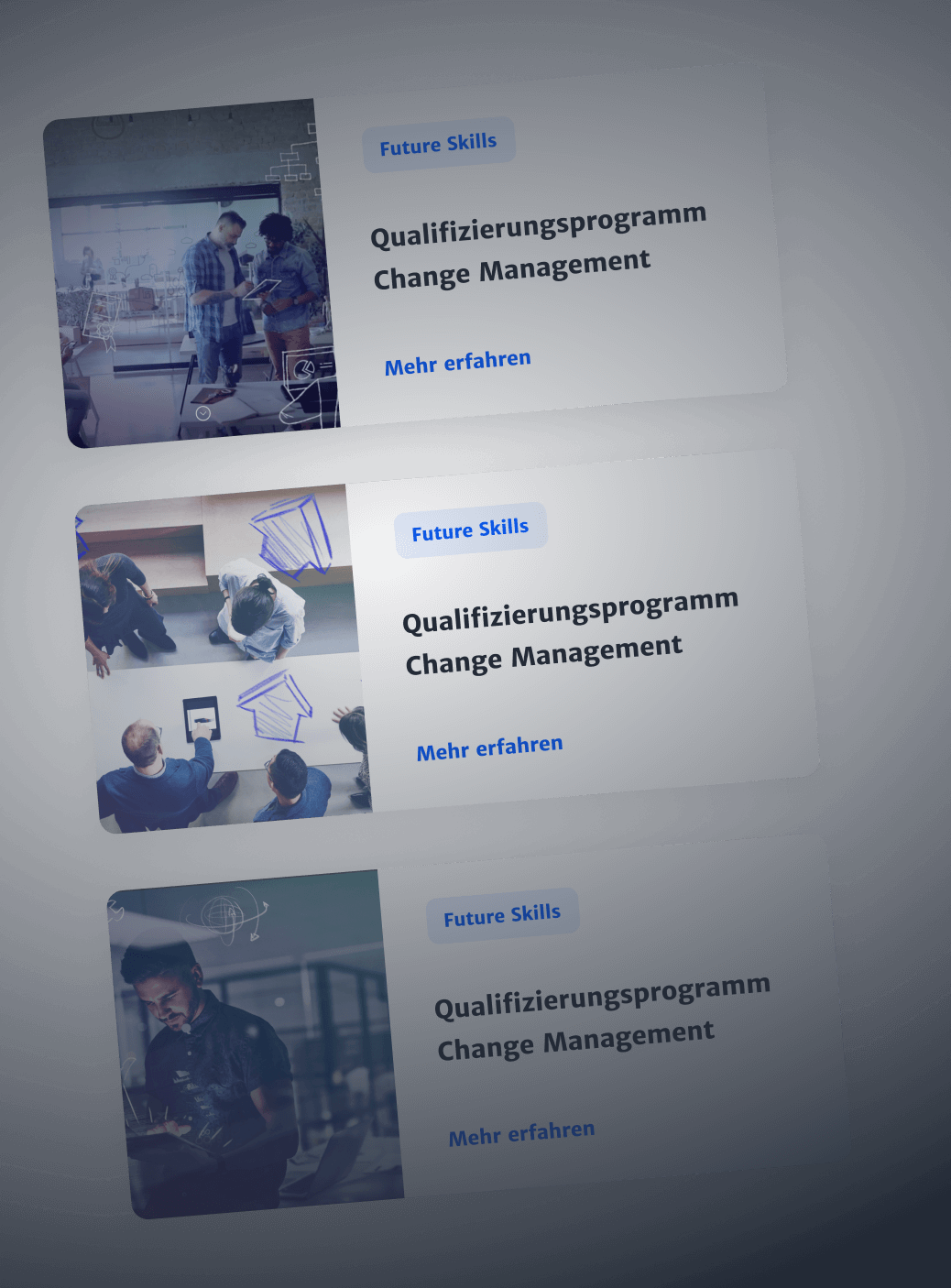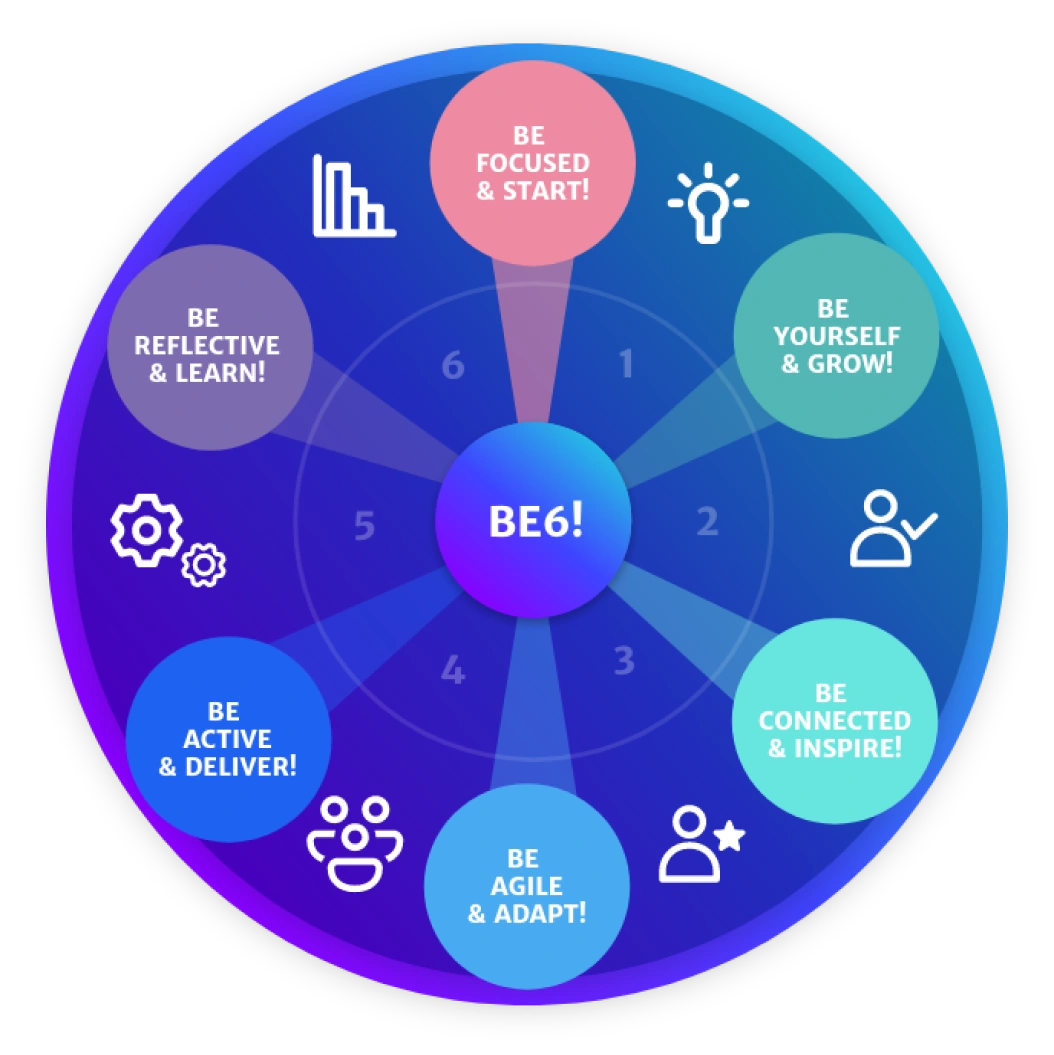
.svg)

Maßgeschneiderte Lösungen. Seien es Führungskräfteentwicklungsprogramme, Ausbildungsgänge im Projektmanagement mit abschließender Zertifizierung oder HR Business Partner-Trainings.

Umfassende Beratungsleistungen für transformative Themen wie New Performance Management, selbstgesteuertes Lernen, Entwicklung eines agilen Skill- und Mindsets, Organisationsentwicklung, etc.
Sie wollen Ihre Mitarbeiter:innen und damit die ganze Organisation in Richtung Zukunftsfähigkeit entwickeln? Finden Sie hier unsere Lösungen im Überblick.




Haufe Be6! Leadership Framework

"Ihr habt uns geholfen den Reifegrad der Lernorganisation zu erheben. Und zwar intern mit diejenigen, die es betrifft und das waren nicht nur die HR-Kolleg:innen, sondern viele viele Kolleg:innen aus unterschiedlichen Geschäftsfeldern, also unsere Kund:innen: Die Lernenden."
Christian Lepsien
Cluster Lead Learning Culture & Performance Development, Deutsche Telekom AG








.svg)
.svg)
statt One-Size-Fits (not)-All Beratungsansätze mit Ihrer Unternehmenskultur im Mittelpunkt.
Ob in Präsenz, virtuell oder in hybrid. Wir haben die Plattformen, Räumlichkeiten und Erfahrung, in allen Formaten durchzuführen.
Wir nutzen einen Mix aus Formaten, um das Lernen menschlich und nachhaltig zu gestalten. Klassisch wie auch innovativ mit ActeeChange®, Eigenland® und Lego Serious Play®.
Die Haufe Akademie als Teil der Haufe Group ist eingebettet in eine starke Gemeinschaft. Ihre Sicherheit und unsere Partnerschaft auf Augenhöhe. Veränderung braucht Zeit, gute Zusammenarbeit und Vertrauen.
Von der Beratung bis zur Weiterbildung: Wir bieten die ganze Lernreise End-to-End.
Unser Pool von 1.700 Trainer:innen und Berater:innen bietet Ihnen eine große Auswahl an erfahrenen, kompetenten Expert:innen.
Gemeinsam mit der Atruvia AG und HORNBACH Baumarkt AG diskutieren wir, warum selbstgesteuertes Lernen die Zukunft ist.
.png)

Erhalten Sie Einblicke in ein Live-Online-Entwicklungsprogramm für einen internationalen IT-Konzern.
Sie benötigen weitere Informationen oder möchten sich beraten lassen? Schicken Sie uns eine kurze Nachricht, wir melden uns umgehend bei Ihnen.
